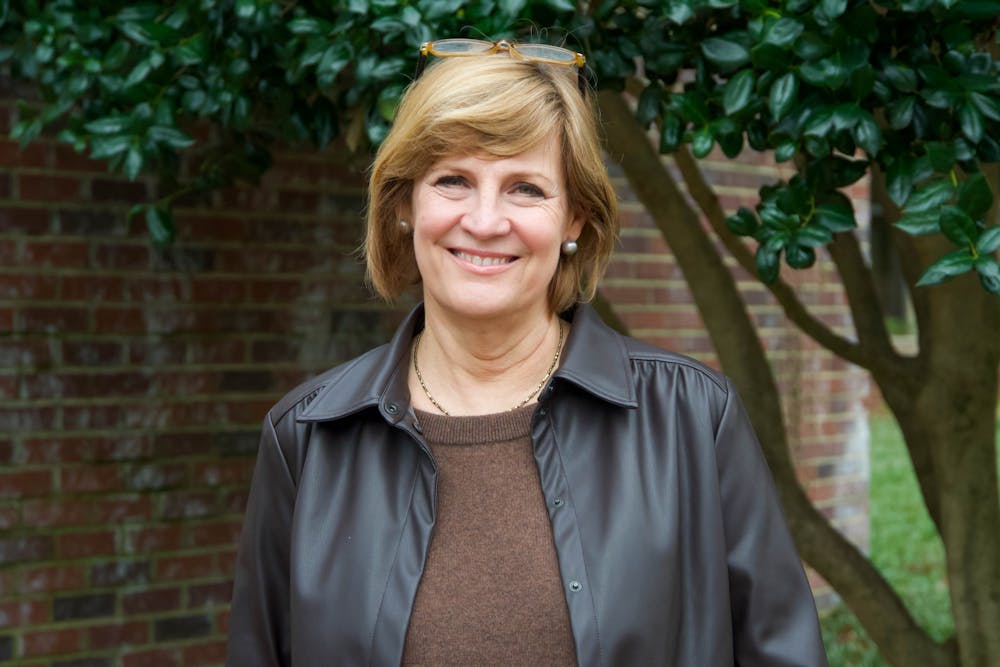Also last year, the Board passed a resolution amending the nomination policy for Distinguished Alumna and Alumnus Awards to allow Board members and other members of the campus community to make nominations — a process which was previously a faculty responsibility. The implementation of the resolution has since been paused for a year.
In early December, there was concern about political interference in the appointment of physics and astronomy professor Chris Clemens as UNC's next provost and executive vice chancellor.
The provost search committee identified provost candidates over the course of a months-long process. Chancellor Kevin Guskiewicz received a short list of these candidates from the committee and selected a candidate from that list to submit to the BOT for approval, according to UNC Media Relations.
But Chapman wrote in a November op-ed published in The Daily Tar Heel that Guskiewicz was “under significant pressure” from trustees and the UNC System to recommend a particular candidate for final approval by the BOT.
Others involved with the provost search process expressed similar concerns.
“Both from my own personal feelings and from conversations I've had with others who were on the search committee with me, I am somewhat concerned that there were other factors — that there were political factors — involved in the final recommendation that was put forward,” junior Ethan Phillips, a member of the search committee, said.
Clemens previously served as the interim faculty director for the Program of Public Discourse in 2019, which was accused of having a strong conservative political leaning and a lack of funding transparency. Several BOT and BOG members were also on the program’s advisory board, which concerned many UNC faculty members.
During the BOT’s Dec. 9 regular meeting, trustees voted on undisclosed action items related to personnel decisions in open session after discussing them in closed session. Later that day, Clemens was announced as provost.
After accusations that the Board’s vote violated North Carolina Open Meetings Law, BOT Chairperson David Boliek called an emergency meeting on Dec. 14 to redo the vote with more specific disclosure of the voting items. The only trustee to vote against Clemens’ appointment was Student Body President Lamar Richards.
Phillips said he's seen a pattern from committees he has served on — such as the Campus and Community Advisory Committee last year — that UNC puts together the right people to discuss a particular issue and offer recommendations and then doesn’t implement those recommendations.
“I think we're going to justifiably see the trust in the administration continually erode if we don't have some changes in the way that these decisions are made or the trust that the administration has in its stakeholders,” he said.
Trustee Teresa Artis Neal was also a member of the provost search committee. She said her experience on both counts did not reflect what Chapman wrote in her op-ed.
To get the day's news and headlines in your inbox each morning, sign up for our email newsletters.
“There are many aspects of shared governance that are beyond the reach and power of those of us on campus,” Artis Neal said. “So for me, it makes sense to try to deal with those issues that are within my sphere of influence, rather than spending a lot of time talking about those things that are beyond it.”
Impact on faculty
Chapman said influence being taken away from faculty in certain areas of University life sometimes undermines the reasons they become faculty in the first place.
She also co-founded the Coalition for Carolina, a group of community members created to assess University governance and defend UNC from partisan interference, according to its mission.
Sharon Holland, chairperson of the Department of American Studies and a member of the Faculty Advisory Committee, said the faculty don’t have as much autonomy to oversee the aspects of University intellectual life they’ve been appointed to.
Without a large movement from the student body and/or the faculty, she said, it is coming down to individuals to say something about UNC’s structural problems. Holland said the University often calls upon Black faculty to sit in on meetings and share their experiences, but that little is done afterward.
“Why don't you take that data and then just do something about it?” she said. “Stop collecting more like it's going to change. And it’s just exhausting for Black faculty.”
The University, Holland said, needs a "reset" of the ethical life.
“And we need to really reset it by even being able to ask those questions and feel that they can be answered by leadership with some concrete steps forward and some structural change," she said.
'A lot of different Carolinas'
BOT Chairperson David Boliek said in a statement through UNC Media Relations that the Board’s priorities of using the University’s ability to drive future economic growth, assuring fiscal responsibility and fostering UNC as a destination educational experience remain consistent.
“The Board of Trustees at UNC Chapel Hill has governance responsibilities rooted in North Carolina statutes and from policies set by the Board of Governors,” Boliek said in the statement. “Our Board members, who are all volunteers, take the responsibilities seriously. Each Trustee is a graduate of UNC and we all love Carolina.”
Chapman said it’s important to consider the question of what it really means to “love Carolina” when talking about the different parts of the institution.
“I think there are a lot of different Carolinas, and the Carolina of when they went to school here might be really different than the Carolina of today," she said. "I think it's really important that we start thinking about what that means and get into more specifics about finding a way to have a common commitment to particular values that underlie the institution."
@hannahgracerose
university@dailytarheel.com



